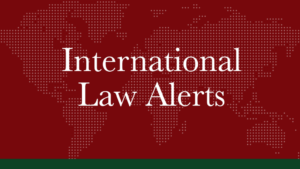
A funding shortfall is putting the lives of some three million refugees in eastern Africa at risk, two UN agencies warned on Tuesday.
In 2020, the ICRC counted 614 armed groups of concern to the organization’s humanitarian operations around the world. As part of its impartial humanitarian work, the ICRC had contact with roughly three quarters of these groups – irrespective of the countries in which they operate, their ideology, religion, motivation or any other characteristic.
The UN migration agency (IOM) on Monday called for “urgent humanitarian access” to an overcrowded migrant detention centre in Yemen’s capital, Sanaa, where a deadly fire reportedly led to multiple deaths at the facility at the weekend.
The Geneva Academy and Geneva Call released two substantive studies on the practice and interpretation of core humanitarian norms by the Fuerzas Armadas Revolucionarias de Colombia – Ejército del Pueblo (FARC-EP) and the Mouvement National de Libération de l’Azawad (MNLA).
Despite the dangers along the road between the border town of Garoua Boulaï and Bangui, the convoy of ten trucks and three cars completed its 1,400-kilometre trip and arrived safely in the Central African Republic, where ICRC staff working to help people affected by renewed fighting.
1,400 Syrians between the ages of 18-25 were surveyed in Syria, Lebanon and Germany. Across the three countries, young people spoke of families and friendships torn apart, immense economic hardship and worry, frustrated ambitions, missed milestones and the profound psychological toll of years of relentless violence and disruption.
While no one has been spared from the effects of COVID-19, the consequences of this pandemic have not been equally felt. This crisis has been defined by profound and persistent inequities both in terms of who is most at risk, and how the world has responded.
The United Nations’ top relief official on Wednesday released $14 million in emergency funding to provide life-saving assistance to thousands of Rohingya refugee families, after a massive fire ripped through the Kutupalong camp in southern Bangladesh, earlier this week.
This document updates and replaces UNHCR’s International Protection Considerations with Regard to People Fleeing the Syrian Arab Republic, Update V, of November 2017.
These Considerations include the most up-to-date information available at the time of writing, from a wide variety of sources.
The analysis contained in these Considerations is informed by publicly available information as well as by information available to UNHCR in the course of its operations in Syria







































































































 on the upper right corner to select a video.
on the upper right corner to select a video.